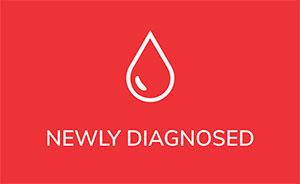Home » Newly Diagnosed » CLL / SLL Symptoms
Symptoms
Many patients are asymptomatic when they are first diagnosed with CLL, but there are some classic symptoms. Learn to recognize them and understand what you might need to do should they occur. These days, most CLL is discovered on a routine blood exam, but symptoms can be present.
The most common symptoms include:
- swollen lymph nodes
- fatigue
- abnormal bruising or bleeding
- recurrent infections
- shortness of breath
- abdominal distention from an enlarged spleen
Less common, but still relevant are:
- abnormal weight loss
- unexplained fever
- night sweats
While CLL can cause a plethora of symptoms, not all symptoms you may be experiencing are necessarily related to your CLL.
Action Items for Symptoms
Check with your doctor.
Don’t ignore any minor infections. Don’t neglect regular care for your non-CLL health issues, such as any cardiovascular or other comorbidities.
Identify the cause.
Should you develop a problem, such as increased fatigue or lymph node swelling, make certain the cause is identified. It is not always the CLL.
Helpful Articles About Symptoms
ADDITIONAL READING

RECENT NEWS
When appropriate, the CLL Society will be posting updates and background information on the present Coronavirus pandemic focusing on reliable primary sources of information and avoiding most of the news that is not directly from reliable medical experts or government and world health agencies.


